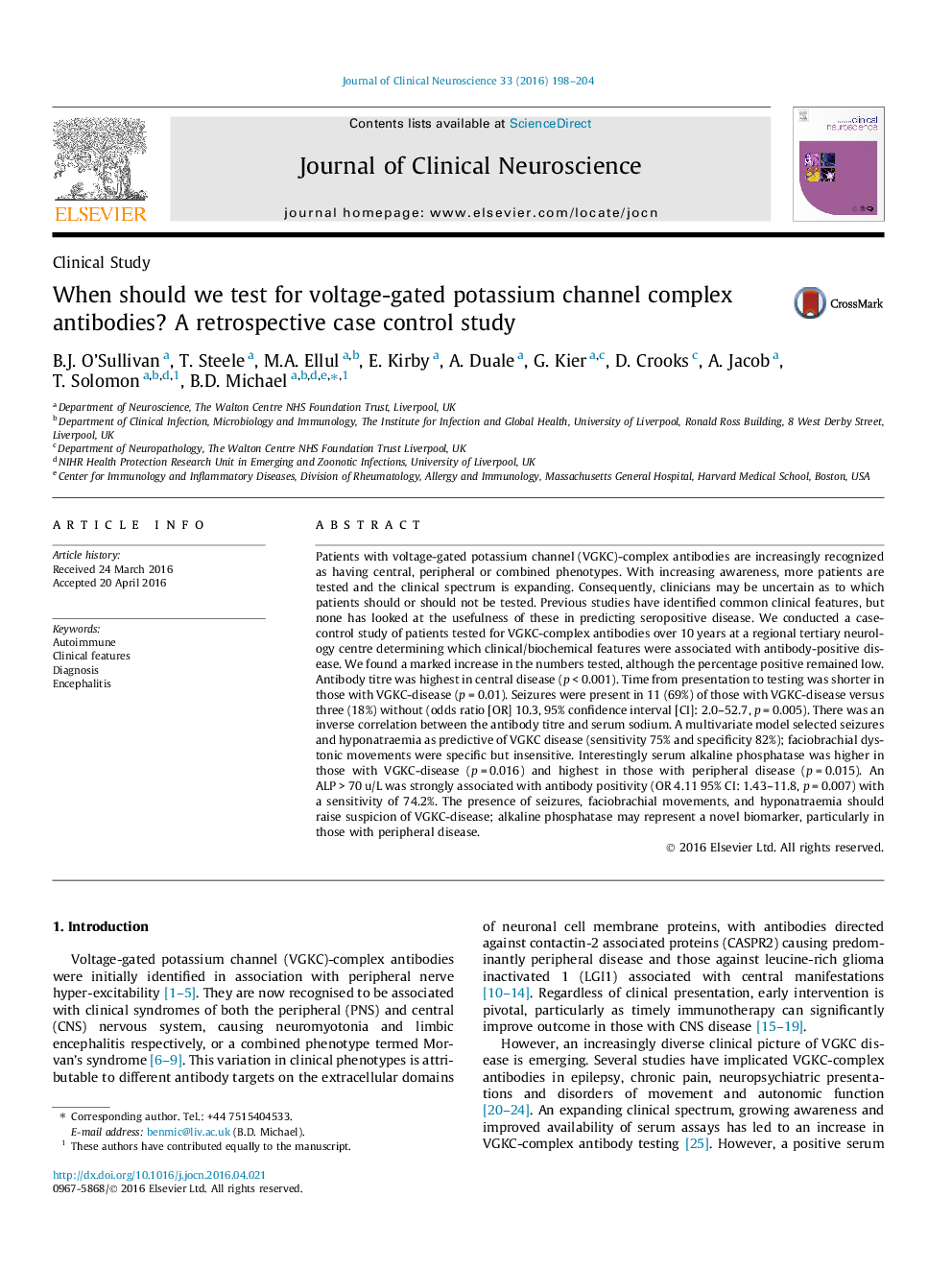| کد مقاله | کد نشریه | سال انتشار | مقاله انگلیسی | نسخه تمام متن |
|---|---|---|---|---|
| 5630034 | 1580283 | 2016 | 7 صفحه PDF | دانلود رایگان |
- We present the first case-control study of VGKC-complex antibodies testing, which was conducted over 10Â years.
- Seizures were present in a greater proportion with proven VGKC-disease.
- Antibody titre was highest in central disease, and there was an inverse correlation between antibody titre and serum sodium.
- Faciobrachial dystonic movements were specific but insensitive.
- Serum alkaline phosphatase was higher in those with VGKC-disease and highest in peripheral disease.
Patients with voltage-gated potassium channel (VGKC)-complex antibodies are increasingly recognized as having central, peripheral or combined phenotypes. With increasing awareness, more patients are tested and the clinical spectrum is expanding. Consequently, clinicians may be uncertain as to which patients should or should not be tested. Previous studies have identified common clinical features, but none has looked at the usefulness of these in predicting seropositive disease. We conducted a case-control study of patients tested for VGKC-complex antibodies over 10 years at a regional tertiary neurology centre determining which clinical/biochemical features were associated with antibody-positive disease. We found a marked increase in the numbers tested, although the percentage positive remained low. Antibody titre was highest in central disease (p < 0.001). Time from presentation to testing was shorter in those with VGKC-disease (p = 0.01). Seizures were present in 11 (69%) of those with VGKC-disease versus three (18%) without (odds ratio [OR] 10.3, 95% confidence interval [CI]: 2.0-52.7, p = 0.005). There was an inverse correlation between the antibody titre and serum sodium. A multivariate model selected seizures and hyponatraemia as predictive of VGKC disease (sensitivity 75% and specificity 82%); faciobrachial dystonic movements were specific but insensitive. Interestingly serum alkaline phosphatase was higher in those with VGKC-disease (p = 0.016) and highest in those with peripheral disease (p = 0.015). An ALP > 70 u/L was strongly associated with antibody positivity (OR 4.11 95% CI: 1.43-11.8, p = 0.007) with a sensitivity of 74.2%. The presence of seizures, faciobrachial movements, and hyponatraemia should raise suspicion of VGKC-disease; alkaline phosphatase may represent a novel biomarker, particularly in those with peripheral disease.
Journal: Journal of Clinical Neuroscience - Volume 33, November 2016, Pages 198-204
